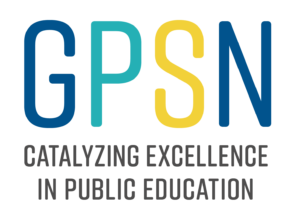Los Angeles families have an important perspective on our public education system.
For three consecutive years, we’ve published our annual representative poll of Los Angeles public school families to uplift their voices and honor their contributions as co-educators. Last year’s poll provided insight into families’ perspectives on the district’s new four-year strategic plan led by Superintendent Alberto Carvalho. As the second academic year of the plan’s implementation begins, it’s an important time to learn how families are feeling about its execution.
To understand families’ experiences with district changes, we added questions about the state of the district, perceptions of children’s academic performance, communication preferences, engagement, and representation to gauge perspectives over time. With three years of representative polling, this poll provides a multi-year view of family opinions on pressing education issues.
Families are seeing positive changes–90% noticed improvements in their schools over the last year. They report accessible, timely information and rate teaching quality as good or excellent. Nearly two-thirds approve of Superintendent Carvalho, exceeding ratings for other state and local education leaders. However, only a quarter award the district overall an “A” grade, and only half believe students are at grade level in reading and math. That number drops for low-income families, with less than a third saying their child is on track. Fewer families than last year feel included in major decisions at their school or district level. More call for academic and socioemotional supports like tutoring, summer programs, and food assistance.
We hope this representative snapshot informs district leaders’ decisions as they advance the strategic plan and pandemic recovery. Families recognize efforts to improve students’ experiences and see opportunities to forge partnerships toward a more equitable, excellent school system.
Major Trends and Findings
Families share their perspectives on the state of Los Angeles public education.
- How families feel about the district
Only a quarter of families award Los Angeles Unified as a whole an “A” grade, and just over half think Los Angeles Unified students are on track in reading and math. Almost two-thirds of families gave Superintendent Alberto Carvalho positive ratings.
- What matters most to families
Over half of families continue to want the district to provide academic resources, like homework support and tutoring, as well as enrichment opportunities outside of school hours.
- What families want to see
In addition to academic supports, families increasingly prioritize other supports, with over half prioritizing support services to meet students’ emotional and mental health needs, and nearly 40 percent of families wanting to see food assistance programs outside of school hours.
- How are families represented in decision-making
Less than half of families felt their perspectives were represented a great deal in major decisions and policy considerations at their school.
- How families want the district to communicate
Over half of families believe it takes a lot of effort to understand communication from their schools, though most do indicate communication is accessible and timely. The largest gap between information families want and what they receive is around academic standards.
- How much access families have to digital resources
Almost three quarters of Los Angeles Unified families still report some barriers to quality internet access, most frequently because of cost. There was significant support for the provision of free home internet for students.
- How committed families are to their current school system
The majority of families report they intend to stay in Los Angeles Unified schools, despite a decrease in the percentage who said they are extremely likely to do so.
Methodology
Potential respondents were invited via email or phone to participate in the survey, with 40% of surveys and interviews conducted by phone (n=200). Phone surveys were conducted with live English and Spanish-speaking interviewers. Eighty-one percent (n=407) of all interviews (phone and online) were conducted in English and 19% (n=94) in Spanish. Respondents were screened to ensure they self-identify as currently responsible for school-aged children in public or charter schools within the geographic boundary of Los Angeles Unified. The margin of error is ±4.4 percentage points for the full survey sample of 501, and higher among subgroups and questions not asked of the full sample. The data was weighted by socioeconomic status and race/ethnicity.
All questions and results are publicly available and disaggregated by school type, family income level, race, and English learner status in this report. Results uplifted in the major findings were identified by GPSN in collaboration with LMU-CEEL. Responses from families who identified that their children are English learners are generally similar to the overall findings of the poll, and there is little variation by school type.
